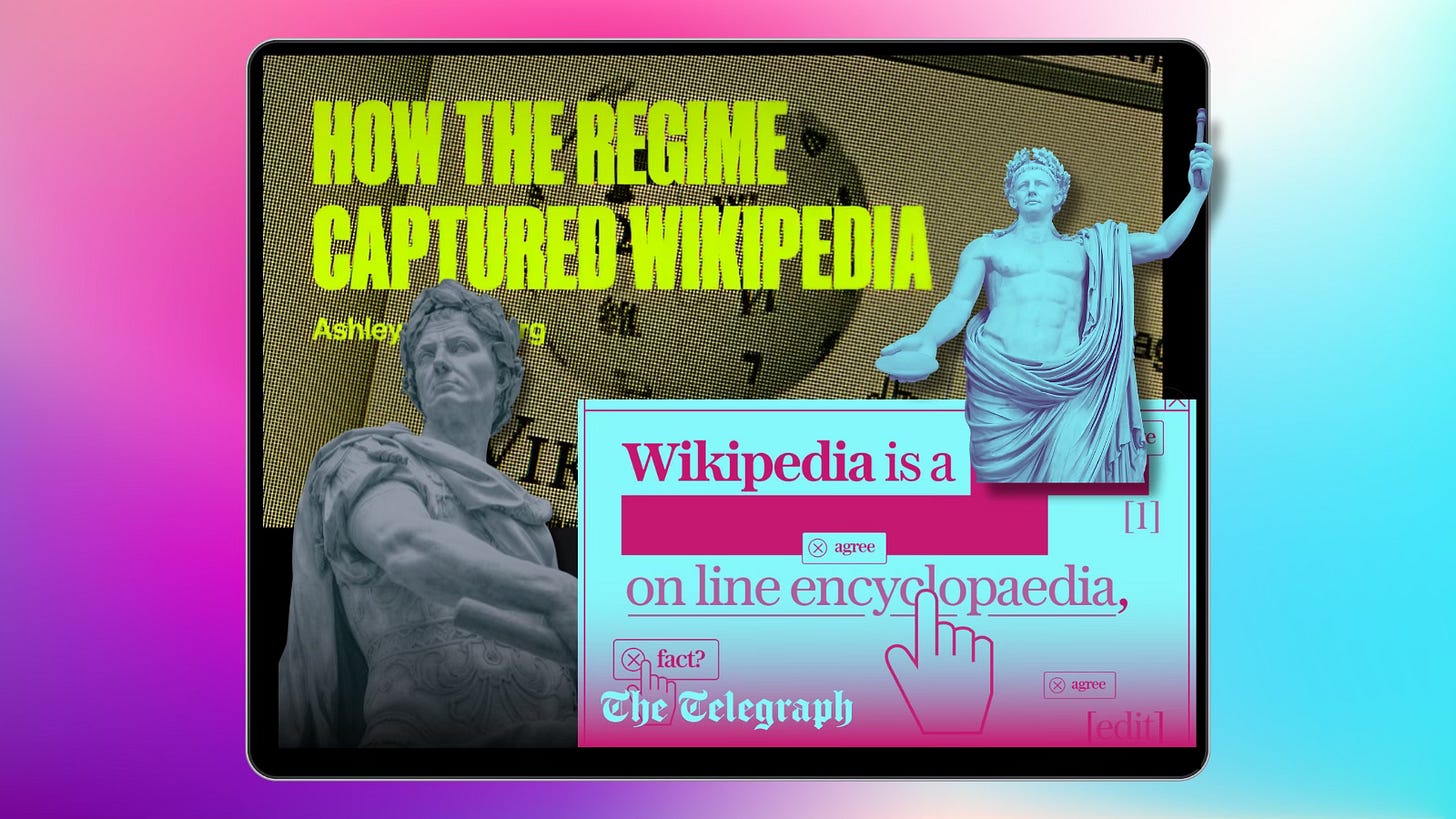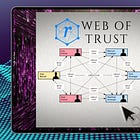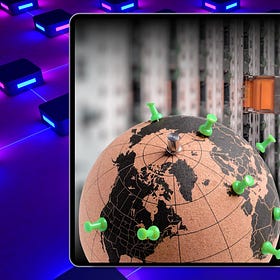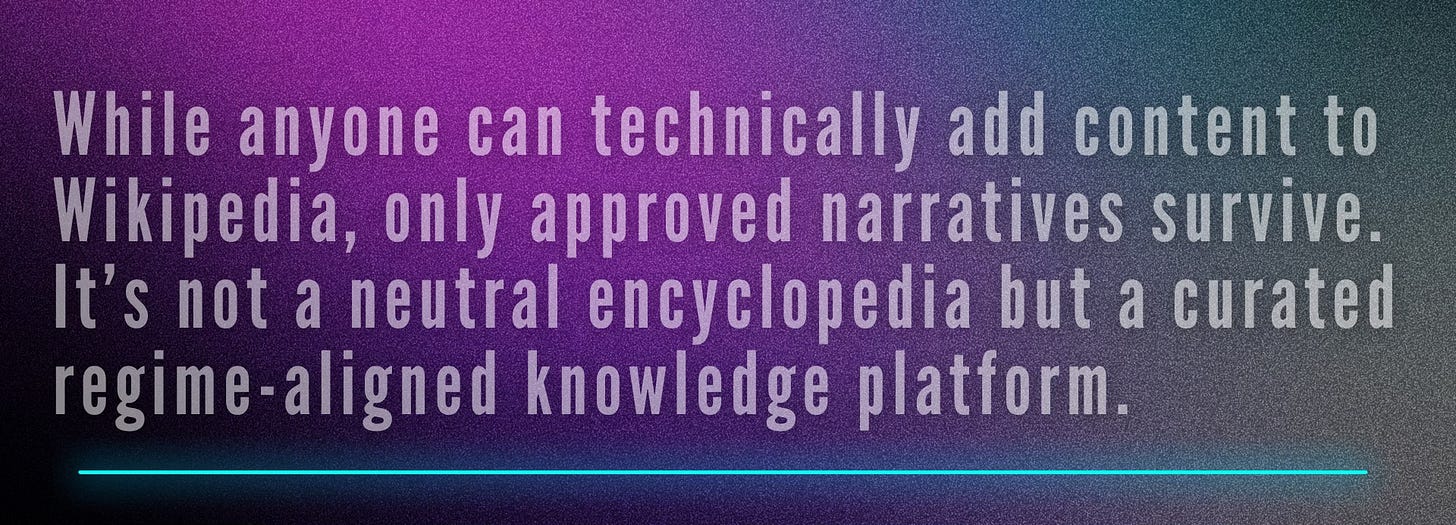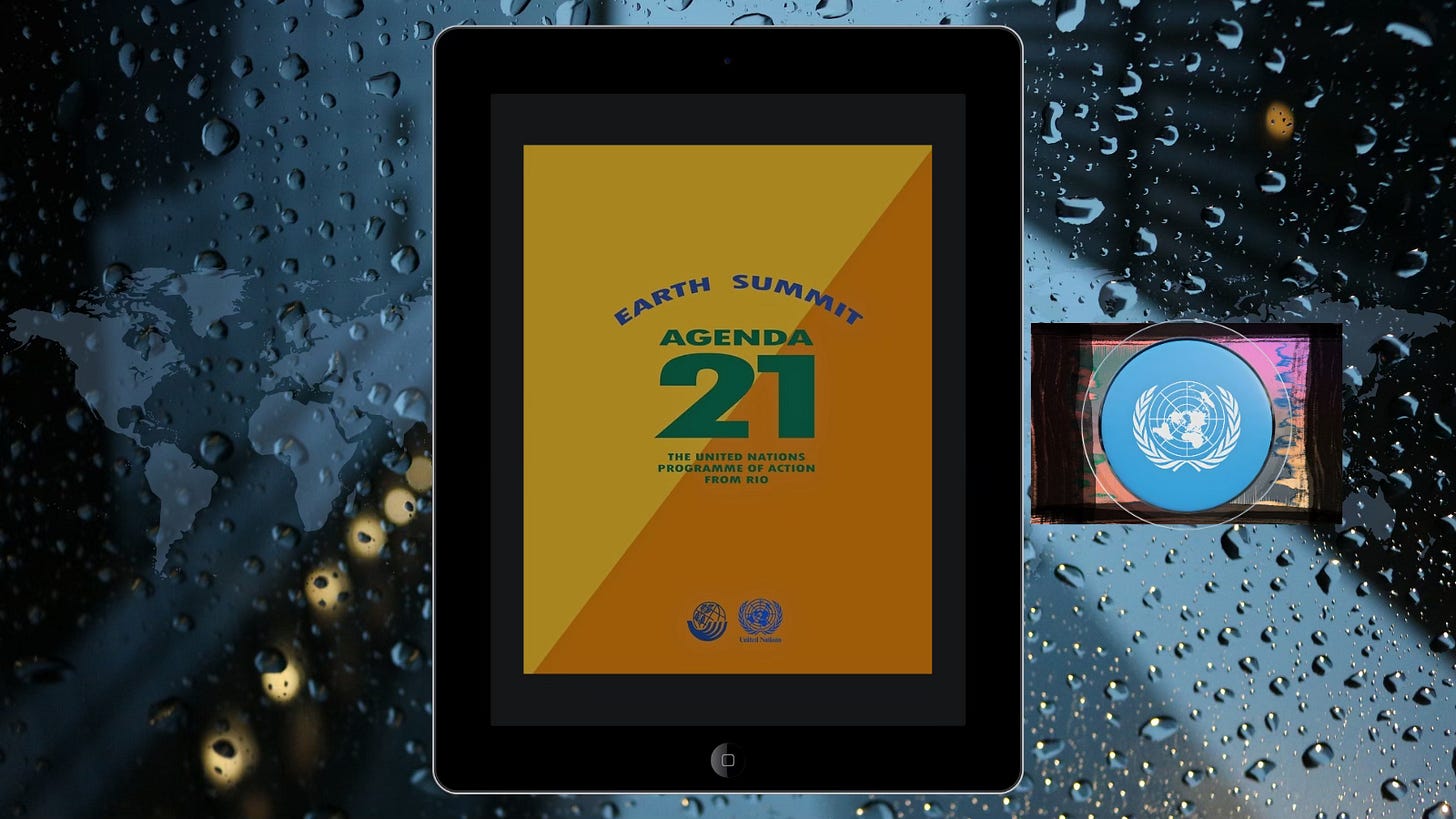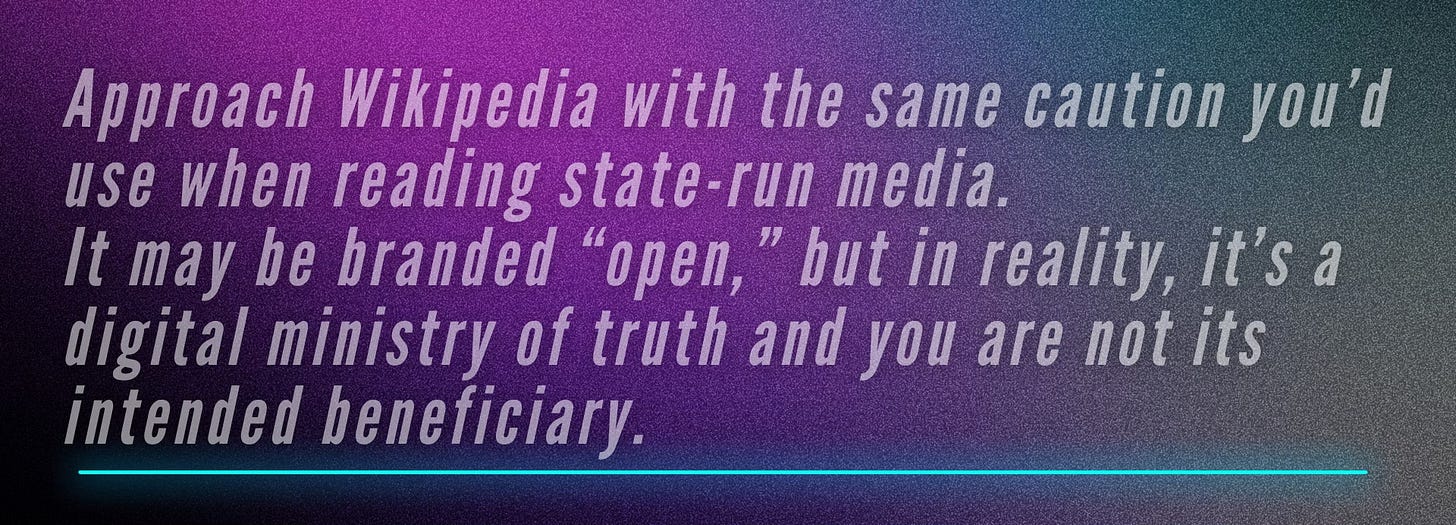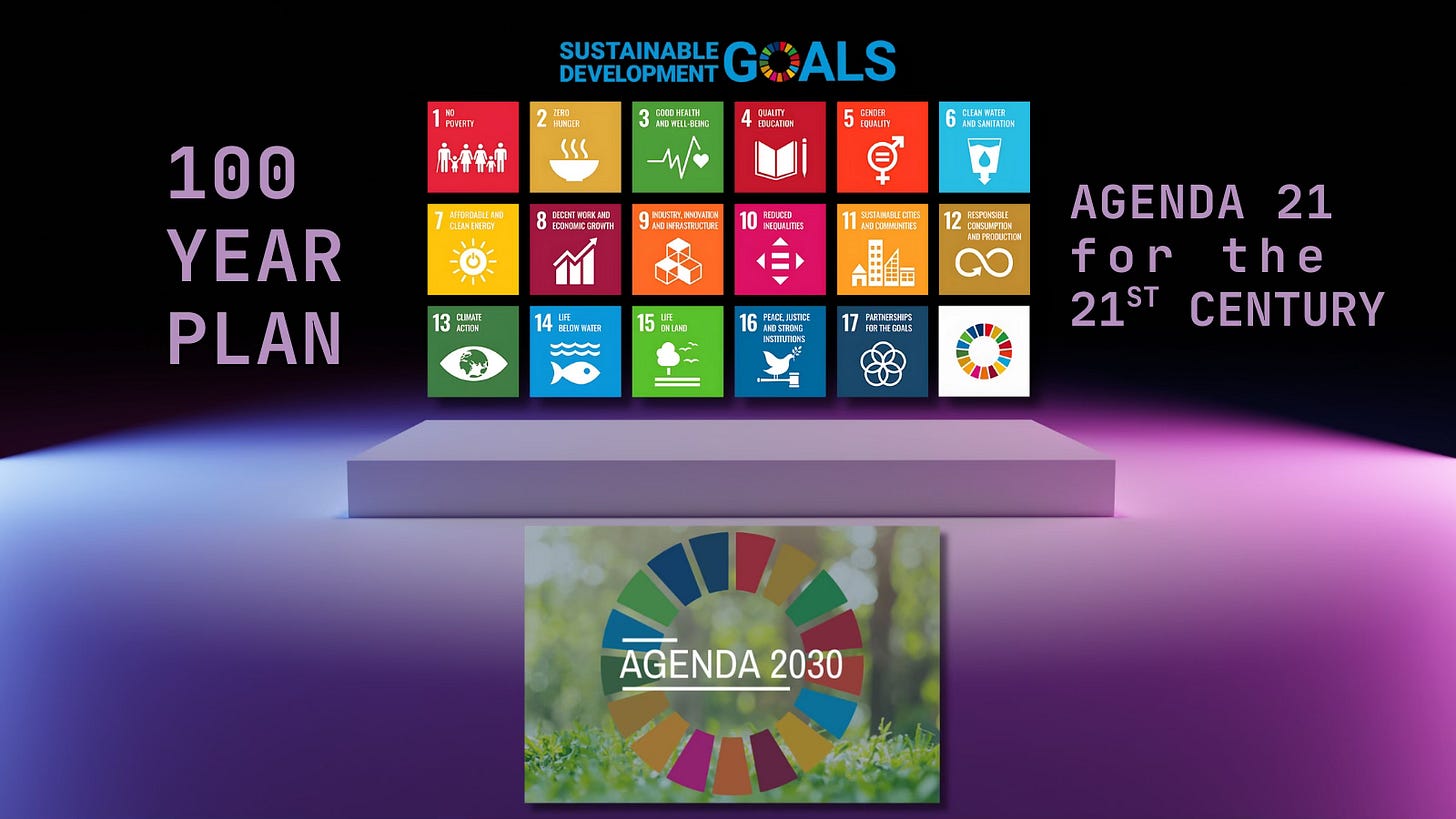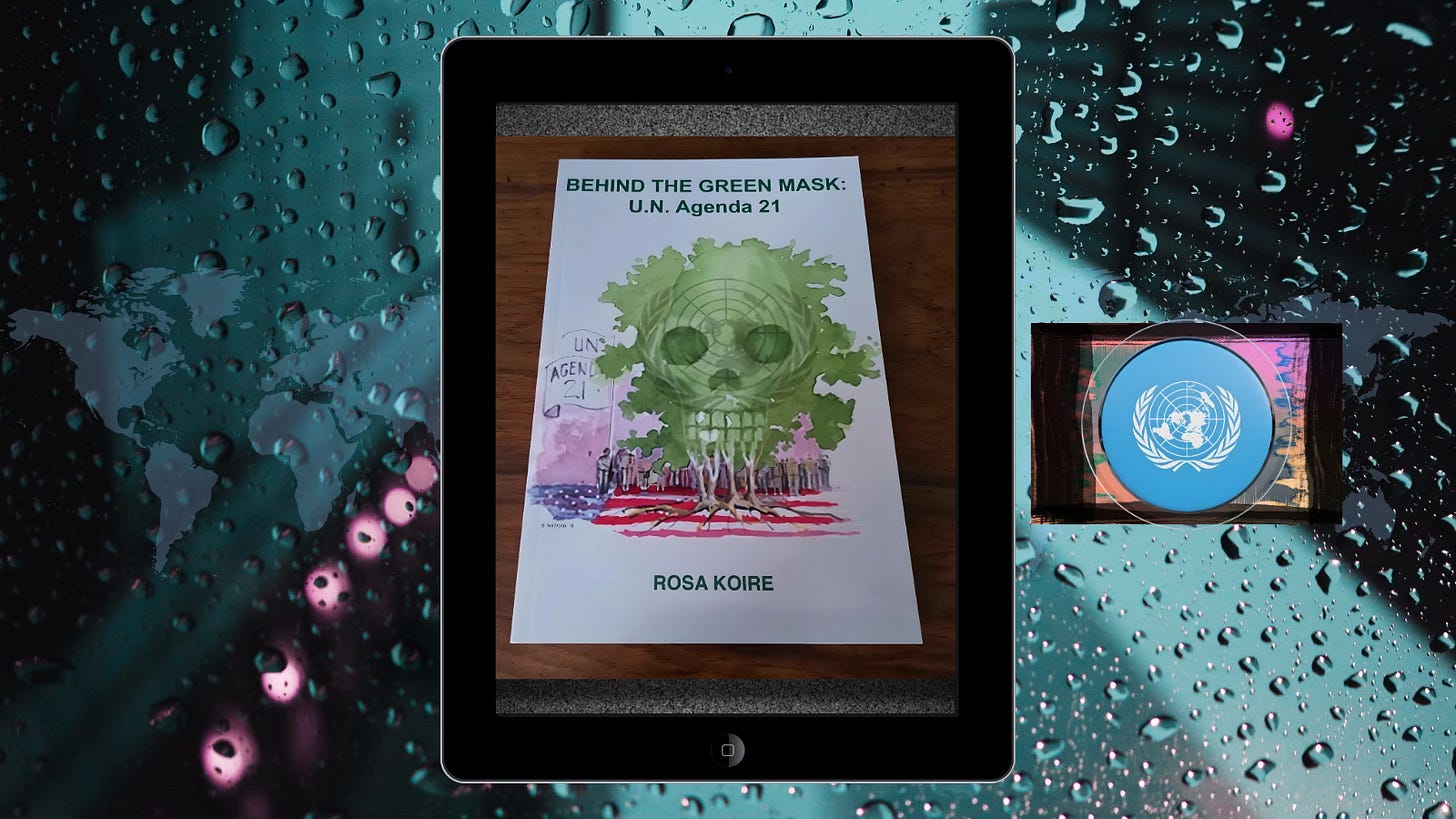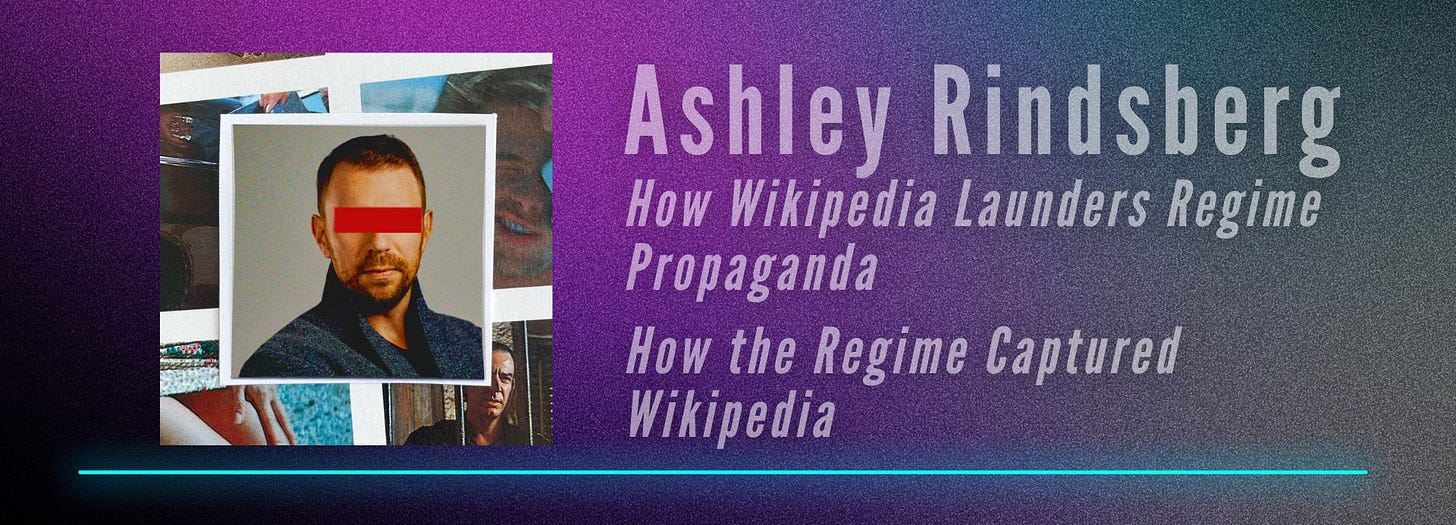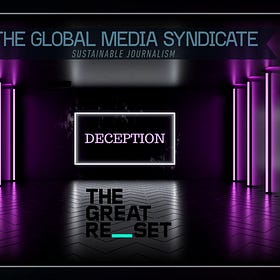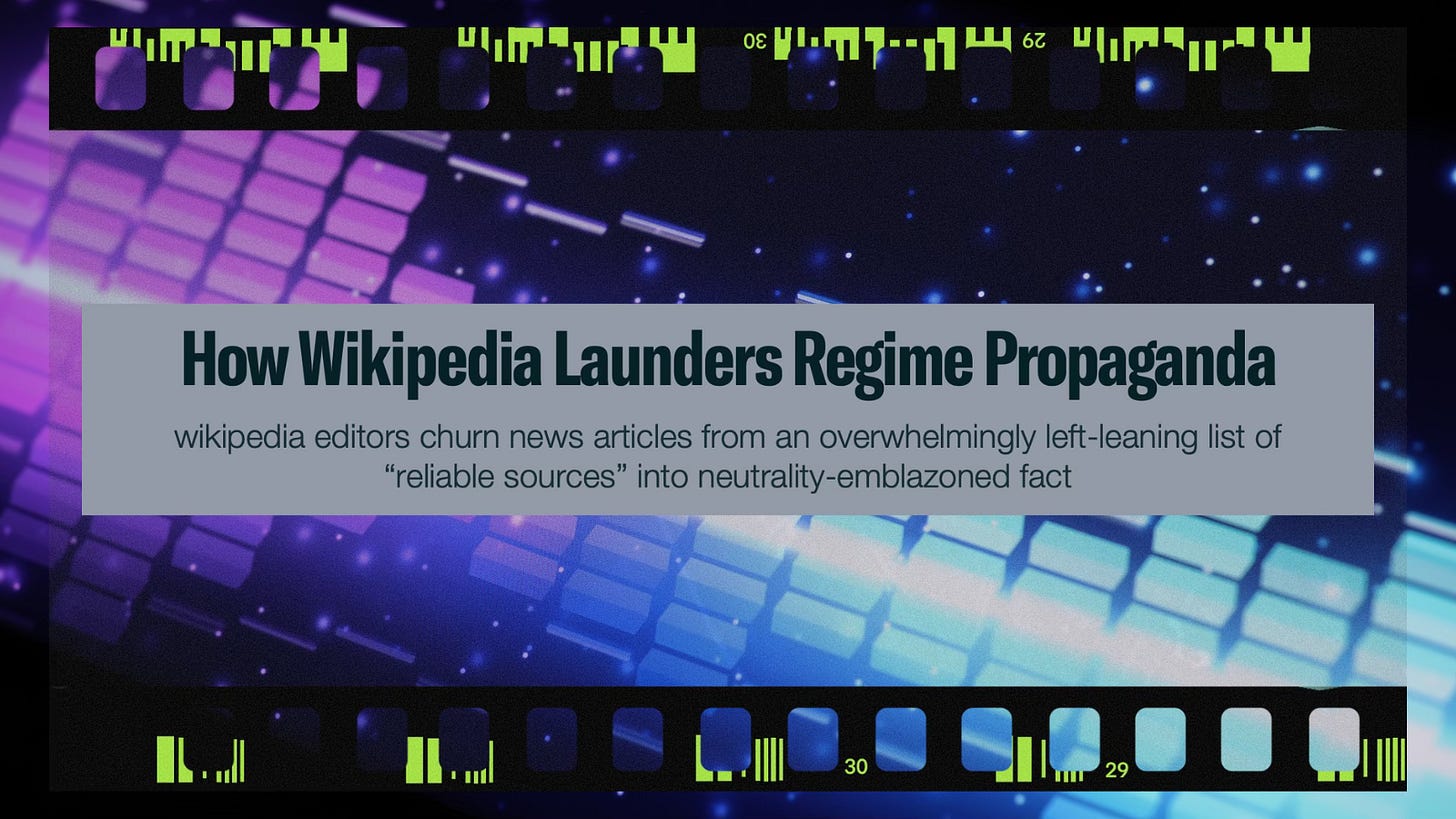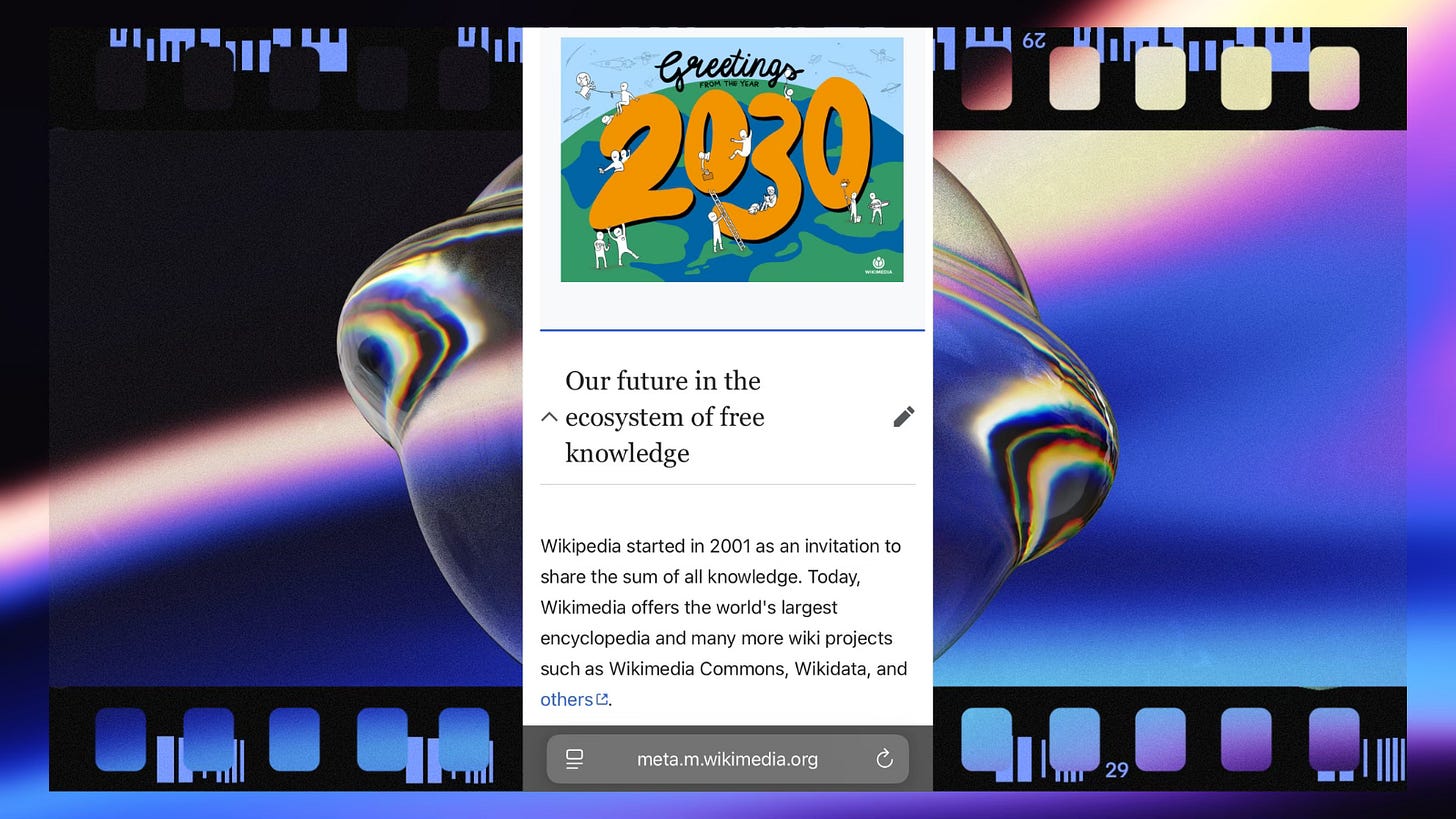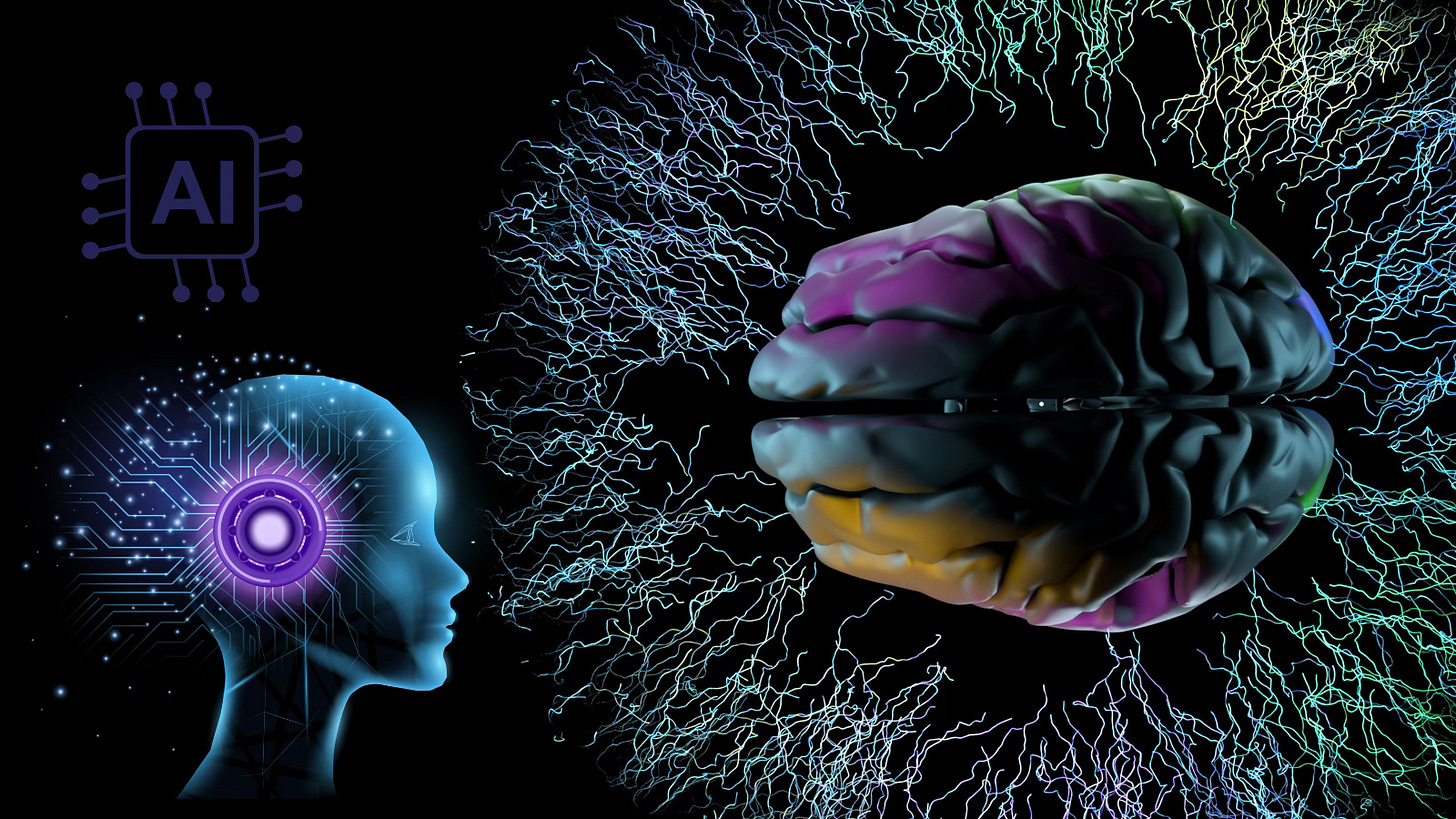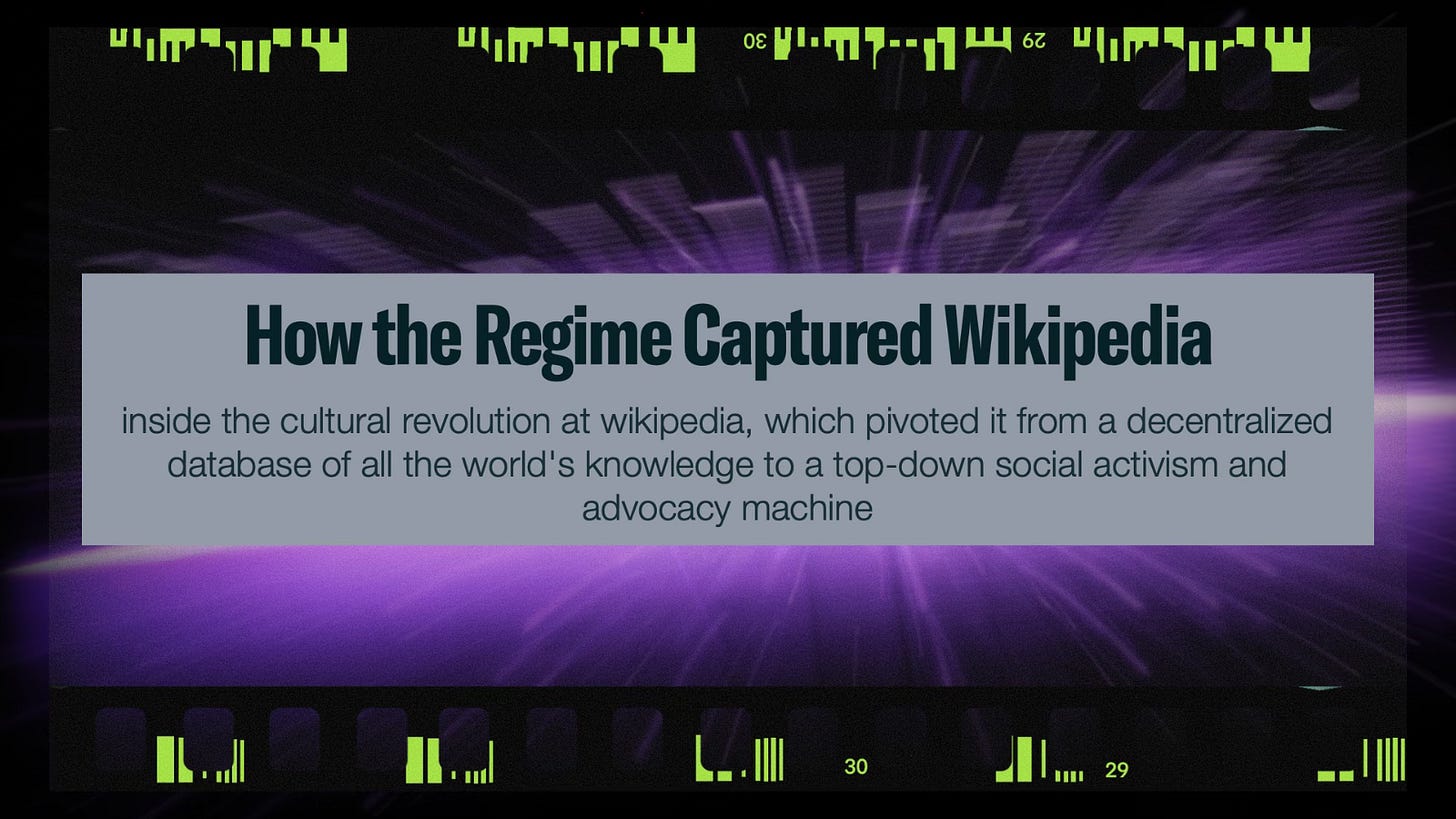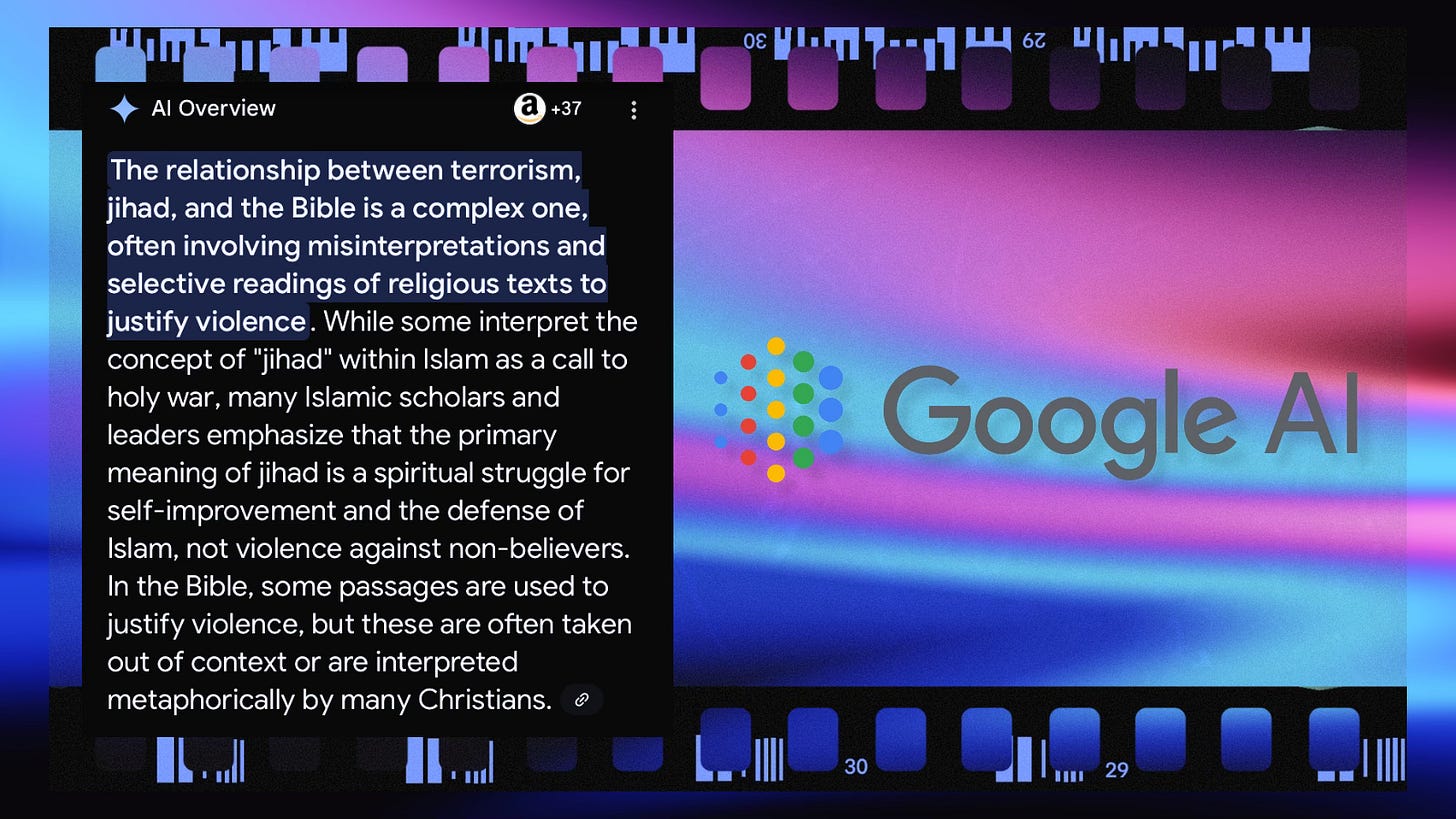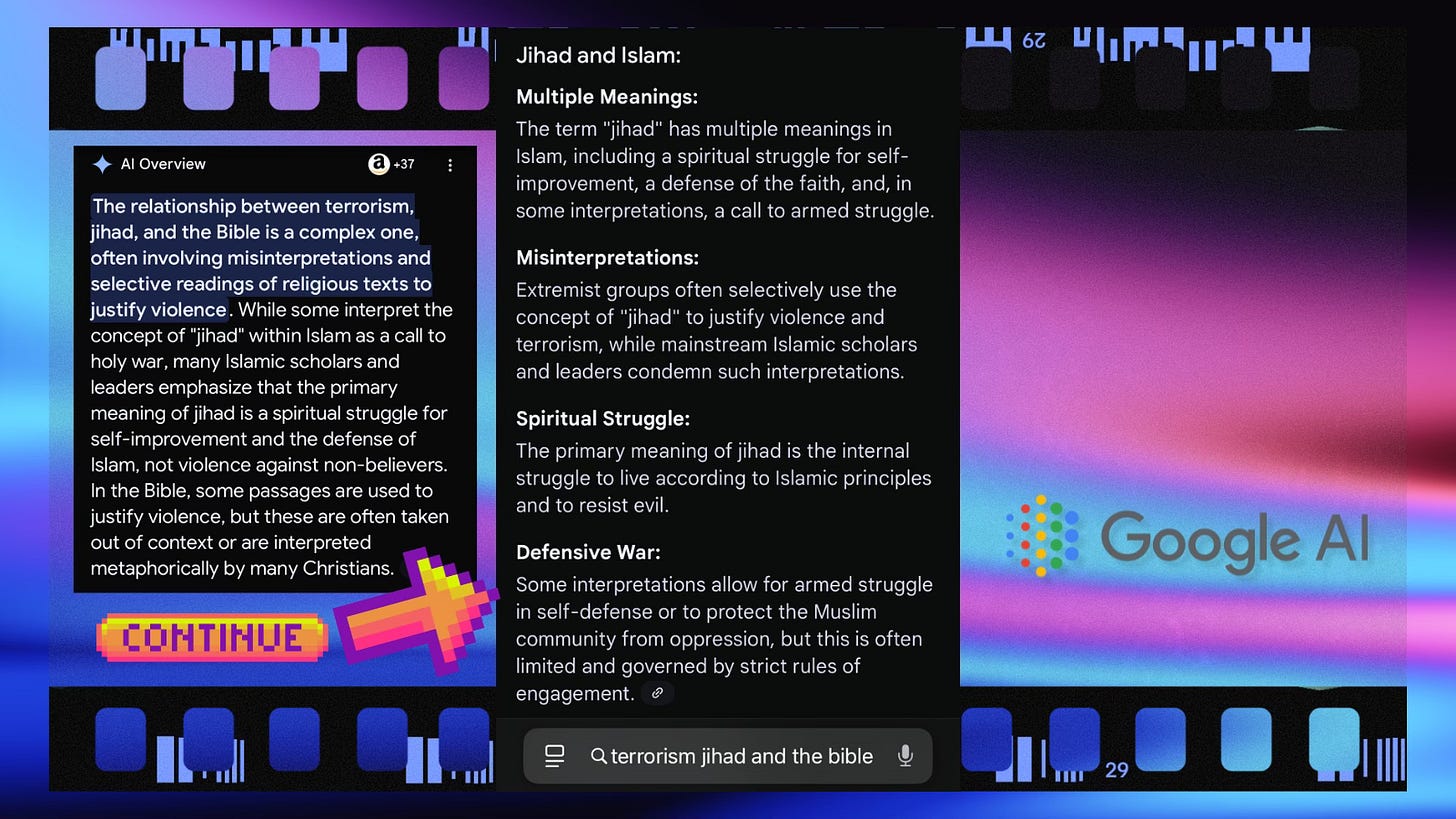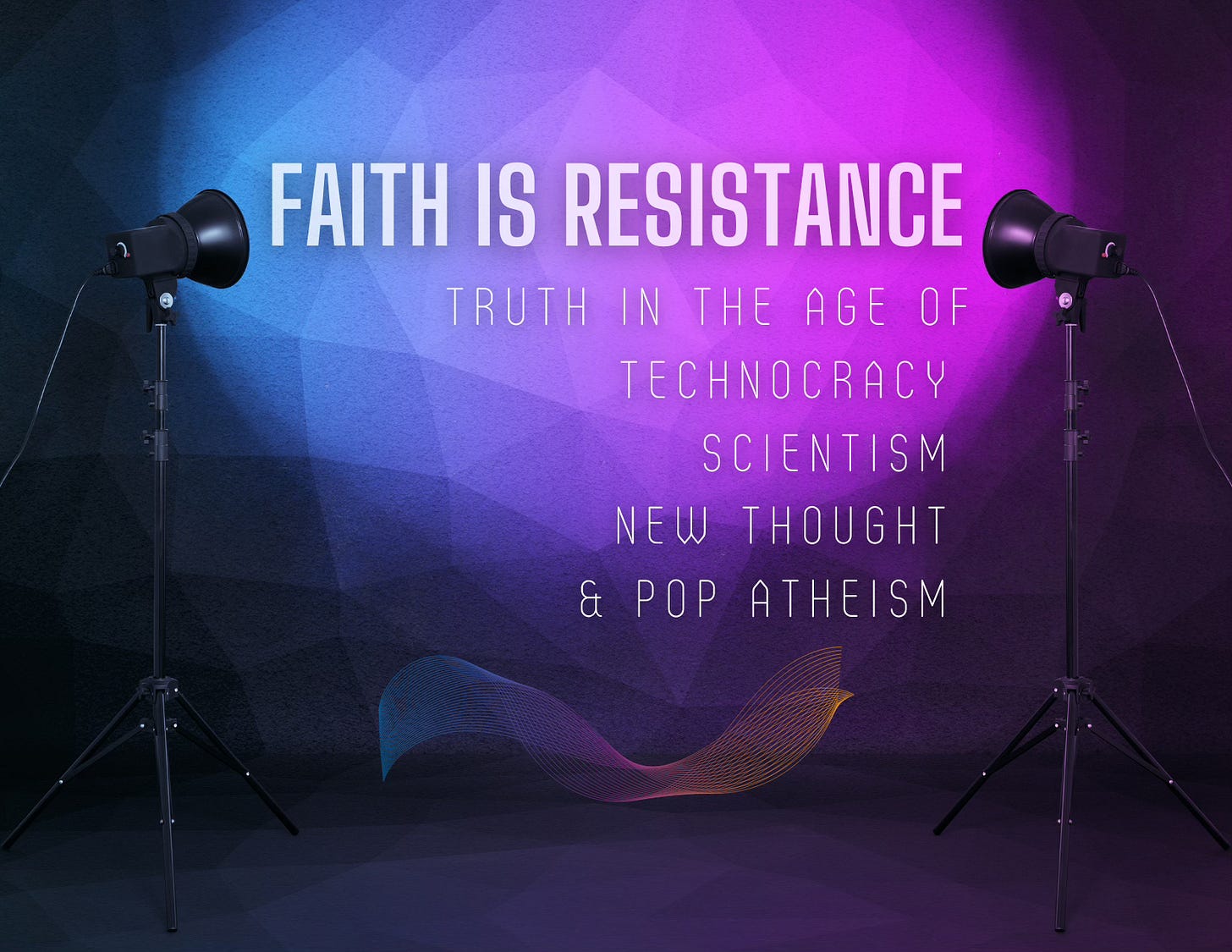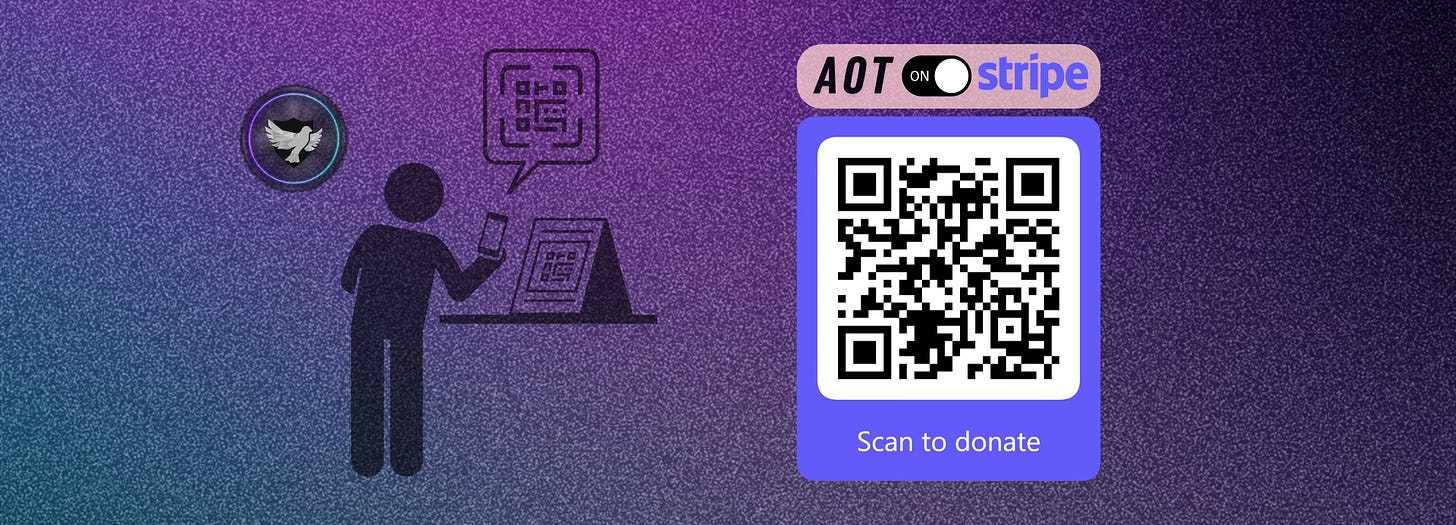Think twice before leaning on Wikipedia to back your claims, you could be unknowingly advancing globalist talking points, echoing carefully filtered narratives shaped by hidden editors and agenda-driven gatekeepers.
“If you want to understand what the regime believes, read Wikipedia. If you want to know what’s actually true, look elsewhere.” Ashley Rindsberg, Pirate Wires
For years, Wikipedia has masqueraded as the internet’s definitive source of neutral information, a decentralized compendium of global knowledge written and maintained by citizen editors. But under the hood, the system operates more like a cartel of narrative enforcers than an open-source encyclopedia.
In the fog the culture/information war, this much is crystal clear: Wikipedia is a captured platform. And what was once a bottom-up experiment in informational freedom is now a top-down tool of ideological discipline and regime propaganda.
How Blockchain, Balkanization, and SDG Compliance Will Replace the Nation-State
Willi Münzenberg and his Frankfurt School heirs planned to rot the West from within. The goal? Collapse the West. Balkanize it. Dismantle the nation-state. Rebuild it as a blockchain-compliant panopticon. We see the trap.
Who Decides What is True?
One of the most troubling aspects of Wikipedia is the anonymous and tightly controlled nature of its editorial process. While the platform is marketed as a decentralized, community-driven encyclopedia, the reality is that a small cadre of ideologically aligned administrators and editors, many hiding behind pseudonymous avatars, hold disproportionate power over what information is allowed to stand. The problem is much worse than incorrect information or personal bias. The platform is actively seeking to shape reality and control narratives.
Unseen, often unknown, gatekeepers decide which sources will be considered “reliable,” which perspectives are marginalized as “fringe,” and who is granted editing privileges. The identities, affiliations, and potential conflicts of interest of these editors are largely opaque, raising serious concerns about bias, manipulation, and even state or corporate influence.
As a result, Wikipedia functions as a tool for laundering regime-approved narratives while suppressing dissent.
The transformation of Wikipedia from a decentralized knowledge platform into a centralized vehicle for ideological enforcement began in earnest with the launch of the Movement Strategy, also known as Wikimedia 2030.1 As one account summarizes,
“The Movement Strategy, also known as Wikimedia 2030, was indeed a massive undertaking. Launched in 2017 by then-WMF executive director and CEO Katherine Maher, the strategy would be a complete re-imagining of WMF and Wikipedia’s mission. Where Wikipedia had been built on the principle of decentralized knowledge, the Movement Strategy would veer into the hyper-centralized space of top-down social justice activism and advocacy.” Read more.
This marked a clear shift from open-source collaboration to institutionalized narrative control, aligning Wikipedia’s editorial direction with the prevailing ideologies of globalist NGOs, state-aligned entities, and activist bureaucracies. Under the guise of equity and inclusion, Wikimedia 2030 effectively replaced the encyclopedia’s founding ethos with a technocratic blueprint for ideological compliance.
There is a strong philosophical and structural connection between Wikimedia 2030 and the United Nations’ Agenda 2030, even if not explicitly named in Wikimedia’s public materials. Both frameworks:
Use the “2030” milestone as a symbolic and strategic target year, signaling alignment with global governance timelines.
Emphasize global equity, sustainability, and inclusivity, using similar language around “empowerment,” “participation,” “diversity,” and “resilience”- all SDG buzzwords.
Prioritize centralized frameworks for guiding local action, despite claiming to value decentralization.
Promote the idea of a unified global narrative, discouraging dissent from “approved” perspectives, especially on issues like climate change, gender ideology, race, health, and political governance.
The now infamous CEO and president of NPR, Katherine Maher held elite leadership roles at Wikimedia from 2014 until 2021. Under Maher’s leadership the Wikimedia Foundation adopted a “movement governance” model that mirrors globalist frameworks like the SDGs. The 2030 Strategy documents stress “knowledge equity” and “capacity building”- terms directly lifted from the lexicon of UNESCO, the World Economic Forum, and other Agenda 2030-aligned institutions.
Let’s take moment to marvel at Ms. Maher’s postmodern, Progressivist, “One-ist”2 epistemology from a 2022 TED Talk:
“In fact, our reverence for the truth might be a distraction that is getting in the way of finding common ground and getting things done.” read more
Maher, here, dismisses a binary understanding of truth and falsehood. This is also the prevailing spirit at Wikipedia; rejecting the inconvenience of objective reality in arenas like politics or religion.
“We all have different truths…”
“I’m certain that the truth exists for you. And probably for the person sitting next to you. But this may not be the same truth… we all have different truths. They are based on things like where we come from, how we were raised, and how other people perceive us.”
Maher (and Wikipedia) do not outright deny the existence of truth, but rather reframe truth as inherently shaped by individual experiences and beliefs. Her emphasis on pluralism in lived experience aligns with core postmodern philosophical positions, for example, (Critical) Constructivism.3
Unsurprisingly, Maher has an extensive background in globalist institutions, including stints with the World Bank, UNICEF, and the Council on Foreign Relations. Her vision for Wikimedia was clearly shaped by her own contradictory epistemology AND, (again unsurprisingly) the ideological architecture of Agenda 21/Agenda 2030 and the Sustainable Development Goals. The father of modern propaganda, Edward Bernays, would surely be flattered by this blatant social engineering operation.
The “world’s largest encyclopedia,” which is boasted to be “the sum of all knowledge” and is currently receiving ~227 million page views per day (8th most visited website on the internet) does not collect and preserve knowledge for our posterity. It instead has been deployed as a top-down model of curated truth prioritizing social justice, digital partnerships, and ideological narrative management. The shift from neutral knowledge-sharing to ideological enforcement is not accidental, it’s a strategic alignment with the UN’s vision for “reimagining” every sector of global society, including information access and historical memory.
In short, Wikipedia is not subversively, but proudly, pushing “open-source” activism for the philosophy of global governance.
From Encyclopedia to Engine of Agenda 21
As stated above, the pivot began in earnest with the launch of Wikimedia’s Movement Strategy in 2017, the top-down reimagining of Wikipedia’s mission, not as a neutral platform for collaborative knowledge, but as an instrument of “knowledge equity.” Under this new regime, the Wikimedia Foundation (WMF) and its associated endowment, seeded and quietly fueled by mega-fund Tides Foundation and Big Tech donors like Google, have embraced the language of social justice activism, equity mandates, and DEI ideology.
Journalist and author Ashley Rindsberg rightly identifies Wikipedia as “a wrapper for mainstream media reporting.” The platform’s obsessive reliance on “Reliable Sources” ensures this. And it is the shadowy activist editors who lie at the epicenter of this globalist shakedown.
“Reliable” Sources?
Wikipedia editors are not allowed to present primary facts or evaluate evidence for themselves. Instead, they must quote from an ever-shrinking list of Greenlit sources which just so happen to align with the ideological aims of the progressive elite. What a shocker, hey?
And who are these “reliable” media outlets? Again, unsurprisingly: The New York Times, The Atlantic, CNN, Vox, The Guardian, and even activist rags like Jacobin and The Nation. Meanwhile, conservative sources including The Federalist, The Epoch Times, and The Post Millennial are categorically labeled “unreliable” or outright banned. Whether you agree with the bias of those sources or not, the point is that the narrative on Wikipedia is openly and effectively one-sided: collectivist.
State-run propaganda from China or Qatar? Any source that threatens the offical “approved” narratives are listed as “no consensus.” Nothing to see here. The bias is systemic and intentional.
A Former Insider Exposes Global Syndicated Media Coup
Global Media Syndicate: How “Independent” News Outlets Serve the Same Masters. These outlets often claim to represent the interests of their respective nations or regions, but behind the scenes, they are integrated into a global ideological framework that aligns with: BRICS+ (Multipolar Technocracy), WEF (Public-Private Governance), UN Agencies (Agenda 2030, SDGs, IDGs, ESG)
The Edit Wars - Controlling the Narrative, Silencing Dissent
When politically charged questions arise, like whether Kamala Harris was ever appointed “border czar” Wikipedia doesn’t resolve them based on factual inquiry. It defers to corporate media, selectively citing whichever outlet aligns with the narrative du jour. One day, Axios and BBC report that Harris was tasked with overseeing the border. The next, in a scramble to protect her candidacy, the media reverses course and so does Wikipedia.
What follows is an Orwellian clean-up job: articles get edited, sanitized, and memory-holed. Critics get banned or silenced by editors wielding procedural tools like “T-bans,” “edit wars,” or appeals to invented policies like “Wikipedia Gaslighting” - a rule created by the same power-user who engineered the Reliable Sources list in the first place.
All of this happens behind the curtain, under the veneer of objectivity. But it’s not consensus, it’s control.
“While conservative American media is almost uniformly red, the same cannot be said of foreign outlets with dubious agendas. State-owned networks China Daily and Xinhua — whose purpose is to spread Chinese government propaganda to the English speaking world — get a yellow for “no consensus.” Al Jazeera, owned by Qatar, an authoritarian state, is blessed with a green reliability rating.
Regardless of its accuracy, the reality is that Reliable Sources/Perennial Sources is the fuel that keeps the engine of political Wikipedia running. With Reliable Sources/Perennial Sources at the core of how articles with political import get edited, Wikipedia is, in many ways, a wrapper for mainstream media reporting, churning news articles into neutrality-emblazoned fact. The veracity of reporting by mainstream media is not to be questioned; doing so violates an informal, but nonetheless efficacious policy broadly known as Gaslighting.
Given all this, you might think Reliable Sources/Perennial Sources is a foundational aspect of the site, ratified early on by some vote or community procedure. But you’d be wrong. While the policy of using reliable sources originated in 2005, the Reliable Sources/Perennial Sources list was created as recently as 2018. Its originator was neither a panel nor a commission of Wikipedia editors. The list was never formally adopted by the community. Rather, it was the creation of a single influential editor who, until his departure from the site in 2020, went by the handle MrX.”
We recommend you read Rindsberg’s detailed breakdown of the “Editor Wars” where the process of exactly how information is bottlenecked and conformed to the approved ideological narrative. You’ll never see Wikipedia the same!
Decentralization in Name Only
Despite its open-editing mythos, Wikipedia is not governed by the masses.
In reality, the word decentralization has become a rhetorical smokescreen, part of a semantic shell game played by globalist institutions to maintain the illusion of distributed power while consolidating control. As we’ve seen with so-called decentralized projects like Cardano, the architecture is often designed to appear participatory and grassroots, only to later “flip the switch” into centralized governance through stakeholder voting, curated identity systems, and SDG-aligned metrics. Wikipedia’s Movement Strategy 2030 operates in this same deceptive pattern: using the language of decentralization to mask its transformation into a top-down regime of ideological enforcement.
Though Cardano may appear to support individual autonomy today, it won’t stay that way for long. In my view, getting on board the so-called decentralized train is actually boarding a future of centralized digital control.
None are more hopelessly enslaved than those who falsely believe they are free.
- Johann Wolfgang von Goethe
Wikipedia and Google - An Information Syndicate
Because Wikipedia powers the top results of Google searches and populates Google’s Knowledge Panels, its biases have global reach. For example, check out this result of a simple book title search: “Terrorism, Jihad, and the Bible,” which is a book written by John MacArthur after the 9-11 “events.” For some reason Google’s A.I. (which informed primarily by Wikipedia) decided that we should be indoctrinated with its version of truth about Islamic teaching:
Why this is propaganda:
The historical and doctrinal core of jihad is most commonly recognized by Muslim leaders, and within the very sacred texts of Islam, as armed struggle against non-believers, not merely inner moral striving. Google A.I.’s, or Wikipedia-by-proxy’s, claim that jihad is primarily a spiritual struggle and not violent is blatant propaganda. The Qur’an itself frames jihad as physical warfare in Surah 9:5, which commands,
“Fight and slay the unbelievers wherever ye find them” (Yusuf Ali translation),
and Surah 8:12, where Allah says,
“I will instill terror into the hearts of the Unbelievers: smite ye above their necks and smite all their fingertips off them.”
The Hadith literature reinforces this militaristic command, including Sahih al-Bukhari 52:220, where Muhammad states,
“I have been commanded to fight the people until they say, ‘None has the right to be worshipped but Allah.’”
What about the most notable Islamic figures? Glad you asked!
Sayyid Qutb and Ayatollah Khomeini have echoed this call to violence against non-Muslims. Qutb taught that Islam must be spread through revolutionary jihad, and Khomeini declared,
“Islam makes it incumbent on all adult males... to prepare themselves for the conquest of [non-Muslim] countries so that the writ of Islam is obeyed in every country in the world” (quoted in Amir Taheri, The Spirit of Allah, 1985, 241).
Wikipedia, through its student, Google A.I., presents a version of Islam that is more palatable, clearly in support of the decades-long globalist’s facilitation of the mass migration of Islamic cultures into Western society. Most assuredly, they already know that these two cultures are flat-out incompatible. Thus, a state of chaos ensues so that the prescribed new order, the death of Western traditions of individual liberty, can eventually prevail.
It is not merely an encyclopedia. It is an unaccountable syndicate of epistemic control laundering narratives into “facts,” cherry-picking sources to reinforce dominant ideologies, and disappearing anything that challenges regime orthodoxy.
In 2022, the launch of Wikimedia Enterprise formalized this relationship. Google became its first paying client, securing a pipeline of pre-filtered, pre-verified information, all under the guise of public service. But this is not public knowledge. It is curated dogma for algorithmic distribution.
A Cautionary Warning
Wikipedia can be useful if you understand what it really is. It is not a trustworthy encyclopedia. It is not a neutral arbiter of truth. It is a mirror of the establishment's beliefs at any given moment, hardened into pseudo-objective language.
Want to know what the regime believes about COVID origins, gender ideology, climate alarmism, or political leaders? Read Wikipedia. Want to know what’s true? You’ll need to dig elsewhere.
Until then, approach Wikipedia with the same caution you’d use when reading state-run media. It may be branded “open,” but in reality, it’s a digital ministry of truth and you are not its intended beneficiary.
As stated at the beginning of our analysis, before citing Wikipedia to support your argument or knowledge base, think twice as you may unknowingly become a mouthpiece for globalist narratives, parroting propaganda curated by anonymous editors and ideological gatekeepers.
Ashley Rindsberg, How Wikipedia Launders Regime Propaganda, Pirate Wires, 2024.
Details Wikipedia's biased editorial mechanisms, the dominance of left-leaning "reliable sources," and the manipulation of political content through procedural enforcement and editorial gatekeeping.
Ashley Rindsberg, How the Regime Captured Wikipedia, Pirate Wires, 2024.
Exposes the Wikimedia Foundation’s top-down ideological transformation through its Movement Strategy, ties to the Tides Foundation, corporate funding (including Google), and its shift from decentralization to DEI-driven narrative control.
Wikimedia 2030 is the Wikimedia movement’s long-term strategic initiative to reorient Wikipedia and its sister projects toward the goals of Knowledge Equity and Knowledge as a Service by the year 2030. Launched in 2017 under the leadership of then–WMF CEO Katherine Maher, the strategy emphasizes global inclusivity, centralized governance reforms, and alignment with sociopolitical activism. It marks a shift from decentralized knowledge collection to a top-down model prioritizing social justice, digital partnerships, and ideological narrative management.
One-ism — Theologian Peter Jones coined the term “One-ism” as the belief that all reality is essentially one, with no distinction between Creator and creation—everything is part of a unified whole. This view is foundational to paganism, pantheism, and much of modern spiritual or ideological syncretism. In contrast, “Two-ism” affirms the biblical worldview: there are two fundamentally distinct realities—God the Creator and His creation. God is holy, transcendent, and separate from the world, though intimately involved with it. Two-ism undergirds Christian truth, moral order, and the Creator–creature distinction (Rom. 1:25).
Constructivism is the epistemological view that knowledge is not objectively discovered but actively constructed by individuals through experience, language, and culture. Critical Constructivism builds on this by adding a sociopolitical dimension, arguing that knowledge is shaped by power structures and ideological forces; it critiques dominant narratives and seeks to empower marginalized perspectives by exposing how "truth" is socially and historically conditioned.



